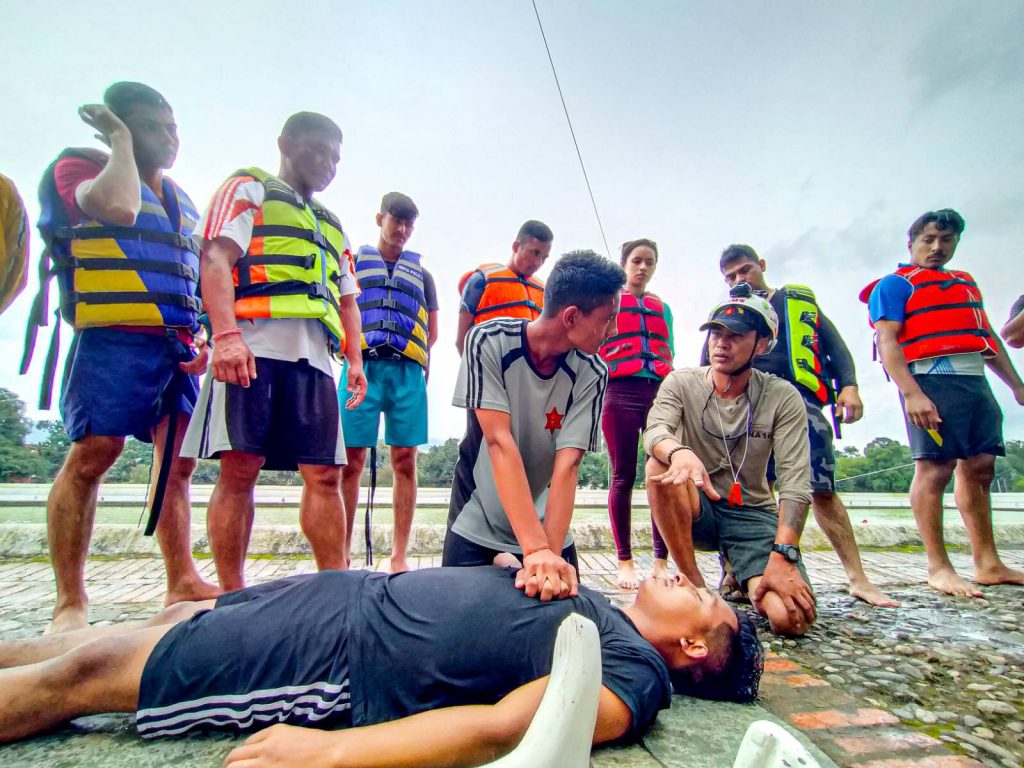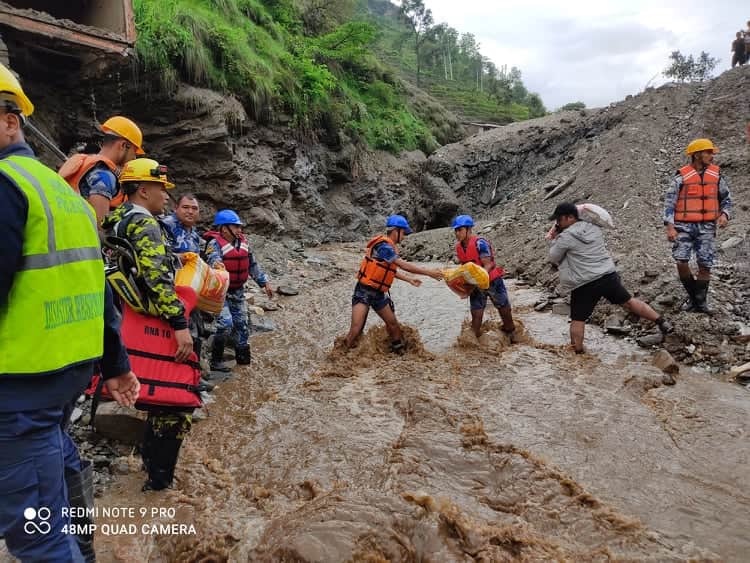Arun Sainju: The unsung hero

Sainju is a Microsoft-certified system engineer. But he admits he didn’t have a clear direction about what he wanted to do in life. It was during the 2015 earthquake when he started helping out at a hospital that he realized he liked being of service to those in need. Sainju had high fever and was admitted at the Bhaktapur Hospital when the earthquake struck on April 25.
People flooded to the hospital as it was a safe space. Many people were gravely injured, some had minor cuts and bruises, and others were just panicking. It was a Saturday so there was only one doctor (his friend) on duty. The few nurses who were there weren’t in any state to help. His friend asked Sainju to step in and that’s how he started volunteering at the hospital.
“You could say the incident changed me. I decided to continue helping people in whatever capacity I could,” he says. Currently, he is also the head of a social service unit at Bhaktapur Hospital that helps people with their medical bills. It makes use of government-allotted funds to do so.
 Work, Sainju says, is definitely taxing. It takes a toll on him mentally and physically. But Sainju is determined to do whatever it takes to alleviate people’s pain and suffering during disasters. His mother died two months after giving birth to him and he lost his father when he was just a boy. The unfortunate events have given him the courage to handle death and dead bodies.
The RNA16 team was also active during the Covid-19 pandemic. The team lived in the first base camp (at 6,065m) for over a year and helped transport 5,000 patients. Amazingly, none of them ever tested positive for Covid-19. They were also the first ones to ready vehicles to carry dead bodies. Sainju says people mocked them at first, said they were taking unnecessary measures. But when people started dying, they were the only ones prepared to handle the crisis immediately.
“Right before the lockdown, we had even started conducting classes at around 128 places on precautions and safety measures,” says Sainju, adding he believes training is of paramount importance in disaster response. When he started out, he rescued first and trained later. It was the need of the hour. But, in hindsight, he could have done better had he had the necessary know-how on disaster management. He has since then trained himself with the help of the army.
Work, Sainju says, is definitely taxing. It takes a toll on him mentally and physically. But Sainju is determined to do whatever it takes to alleviate people’s pain and suffering during disasters. His mother died two months after giving birth to him and he lost his father when he was just a boy. The unfortunate events have given him the courage to handle death and dead bodies.
The RNA16 team was also active during the Covid-19 pandemic. The team lived in the first base camp (at 6,065m) for over a year and helped transport 5,000 patients. Amazingly, none of them ever tested positive for Covid-19. They were also the first ones to ready vehicles to carry dead bodies. Sainju says people mocked them at first, said they were taking unnecessary measures. But when people started dying, they were the only ones prepared to handle the crisis immediately.
“Right before the lockdown, we had even started conducting classes at around 128 places on precautions and safety measures,” says Sainju, adding he believes training is of paramount importance in disaster response. When he started out, he rescued first and trained later. It was the need of the hour. But, in hindsight, he could have done better had he had the necessary know-how on disaster management. He has since then trained himself with the help of the army.
 Sainju laments Nepal isn’t ready for disasters. It’s not equipped to handle large-scale crises. It’s mostly because of lack of trained manpower as well as facilities, he says. RNA16 provides training for free and has, so far, taught over 6,000 students the basics of disaster management.
One of the major issues during any emergency is lack of proper response. Untrained rescue operators can do more harm than good. Sainju aims to change that. He also wants to open a school that specializes in rescue and disaster response. “I want to establish a system that will produce trained manpower and prepare Nepal to face any disaster.”
Sainju laments Nepal isn’t ready for disasters. It’s not equipped to handle large-scale crises. It’s mostly because of lack of trained manpower as well as facilities, he says. RNA16 provides training for free and has, so far, taught over 6,000 students the basics of disaster management.
One of the major issues during any emergency is lack of proper response. Untrained rescue operators can do more harm than good. Sainju aims to change that. He also wants to open a school that specializes in rescue and disaster response. “I want to establish a system that will produce trained manpower and prepare Nepal to face any disaster.”
related news
Guras tales: Gratifying or mortifying?
April 22, 2024, 12:24 p.m.
Learn, live, and let go
April 21, 2024, 1:10 a.m.
Including people with disabilities in community forests
April 17, 2024, 1:02 p.m.
The right way to store food
April 16, 2024, 12:25 p.m.
Misconceptions about mental health
April 14, 2024, 1:39 a.m.
Good Reads
April 14, 2024, 1:36 a.m.
Virtual book clubs that you can join
April 7, 2024, 1:47 p.m.
Api Himal Base Camp: Exploring a hidden treasure of far-west Nepal
April 7, 2024, 11:52 a.m.









Comments